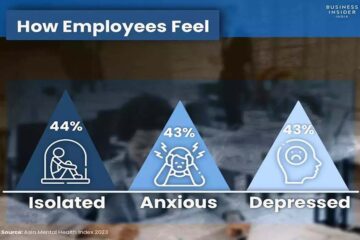The Potential of Metaverse in Mental Healthcare: Insights from WEF Report

Understanding the Significance
A recent report by the World Economic Forum (WEF) suggests that the metaverse, a virtual shared space, could serve as a groundbreaking solution to address the escalating global mental health crisis. This assertion gains significance in light of the Surgeon General of the United States declaring excessive screen time and social media usage as critical public health concerns.
Exploring the Metaverse
The metaverse represents digital environments where individuals can interact socially and professionally. WEF proposes that these virtual spaces, encompassing augmented or virtual reality technologies, offer new avenues for connection and engagement, potentially mitigating mental health challenges instead of exacerbating them.
Escalation of Mental Health Crisis
Even before the onset of the COVID-19 pandemic, mental health issues were on the rise. However, the current situation has intensified the crisis to unprecedented levels, surpassing the capacity of available mental health resources. In response, innovative solutions are urgently needed, prompting the consideration of federal reimbursement for tele-mental health services in the United States.
The Role of Technology-Driven Solutions
Both psychiatrists and technology experts advocate for a technology-driven mental health infrastructure to address various aspects of mental healthcare, including prevention, diagnostics, therapy, education, and research. Gaming platforms have demonstrated promise in mental health treatment, enhancing patient engagement and reducing stigma associated with mental health disorders.
Innovations in Mental Health Technology
Several organizations, such as DeepWell Therapeutics and Ninja Theory’s Insight Project, have developed video games targeting depression and anxiety. Additionally, platforms like Mindful Metaverse by TRIPP utilize virtual reality-enabled mindfulness and meditation techniques to promote well-being. Advancements in interface technologies, such as Emerge Wave 1, enhance social and emotional connections in virtual environments by simulating touch through ultrasonic waves.
Integrating Neurotechnologies
Noninvasive neurotechnologies like Neurable headsets can measure users’ emotional states and provide tailored feedback. These technologies, along with therapeutic neurotechnologies like direct brain stimulation, hold potential for treating severe depression. Integrating such innovations into the metaverse could revolutionize mental healthcare delivery and patient outcomes.
Future Outlook
Experts believe that leveraging the metaverse to address the entire spectrum of mental healthcare needs could yield significant benefits for both patients and the development of virtual spaces. By anchoring the metaverse in practical applications like mental healthcare, its emergence and widespread adoption could be propelled forward.
Conclusion: A Promising Solution
With increasing attention on mental health concerns, the exploration of the metaverse as a solution is eagerly awaited. As the Surgeon General’s call to action reverberates globally, the metaverse emerges as a promising frontier in the ongoing battle against the mental health crisis.














